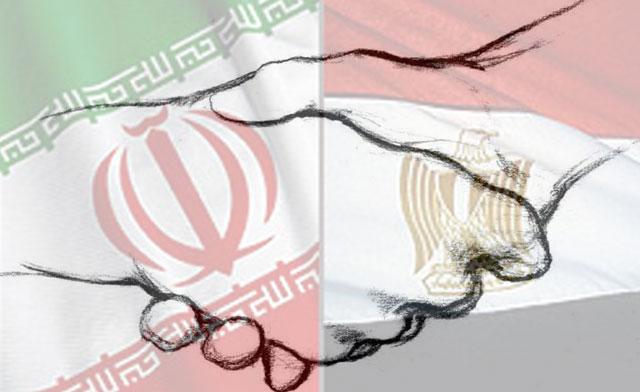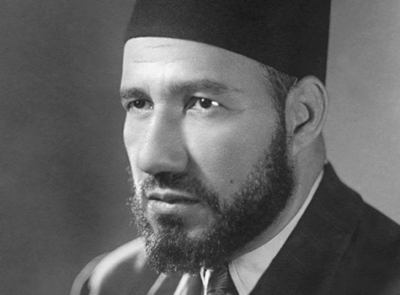 The fundamental divide in Islam is all too often overlooked when evaluating Middle Eastern countries’ relationships, foreign policies, and roles in the international community. Despite a myriad of nuances among Muslims, from spoken language to the sect of Islam to which they belong, the majority of people worldwide ignorantly group Muslims into one category: Muslim. Similar to how a native New Yorker may cringe at being mistaken as someone from New Jersey, arguing that just because the states border each other does not make them the same, the Muslim community cannot be grouped into a single, neat package. Rather, it is important, especially when aiming to understand an Islamic government, to be cognizant of the major differences in Islam.
The fundamental divide in Islam is all too often overlooked when evaluating Middle Eastern countries’ relationships, foreign policies, and roles in the international community. Despite a myriad of nuances among Muslims, from spoken language to the sect of Islam to which they belong, the majority of people worldwide ignorantly group Muslims into one category: Muslim. Similar to how a native New Yorker may cringe at being mistaken as someone from New Jersey, arguing that just because the states border each other does not make them the same, the Muslim community cannot be grouped into a single, neat package. Rather, it is important, especially when aiming to understand an Islamic government, to be cognizant of the major differences in Islam.
With more than 3 billion followers, Islam is one of the world’s three major monotheistic religions. Divided into two main categories, the majority of Muslims (between 80-90%) are Sunni, and the rest are Shiite. Historically, the biggest difference between the two groups was their belief as to who should succeed the Prophet Muhammad after his death in 632 AD. Whereas Sunnis believed the next caliph (leader of the Muslim community) should be elected by consensus of the ummah (Muslim community), Shiites believed a blood relative of Muhammad should lead the Muslims. Although not the only difference between the two sects, the historical debate over Muhammad’s successor catalyzed the divide between Sunnis and Shiites.
Ruled by Sharia law since the creation of the Islamic Republic in 1979, Iran has been the not-so-loved poster child for an Islamic government. Despite its name and government policies appearing daily in major media outlets, Iran does not represent the collective Muslim population. With a majority Shiite population, Iran constitutes a small percentage of the ummah.

Iran’s tumultuous relationship with the United States, specifically concerning Iran’s alleged violations of the Treaty on the Non-Proliferation of Nuclear Weapons (NPT), guides countries’ views of Iran and consequently the world’s views of Islam as a form of government. However, with its Shiite-ruled government, Iran cannot be viewed as a model for all current and potential future Islamic governments. Although the world may disagree with Iran’s violation of the spirit of the NPT and the government’s exorbitant human rights violations, it is unfounded to assume that Islam is the basis for Iran’s internationally deemed offenses. It is more likely that a corrupt and politically-realist charged leader is the culprit.
Similarly, it is illogical to associate Iran’s wrongdoings and international image as an Islamic government as representing all Islamic based political groups. Unfortunately, the current political situation in Egypt, which involves an Islamic organization, the Muslim Brotherhood, is leading many to draw correlations between two dissimilar entities.
Founded in Egypt in 1928 by Hassan al-Banna, the Muslim Brotherhood is arguably the world’s most influential Islamist organization. Its slogan, “Islam is the solution,” epitomizes the group’s religiosity. To the dismay of many in the international community, the Muslim Brotherhood has proved an influential force in the Egyptian government’s post-Arab Spring reformation.

Hassan al-Banna
In late 2011, The Muslim Brotherhood’s Freedom and Justice Party won the majority of seats in Egypt’s Parliament. In early 2012, Saad al-Katatni, a senior member of the Muslim Brotherhood, was elected speaker of Egypt’s Parliament.
 Saad al-Katatni
Saad al-Katatni
With the Muslim Brotherhood already playing an influential role in Egyptian politics, the potential for an Egyptian president affiliated with the Muslim Brotherhood has elicited international concern over the fate of the Egyptian government. Egypt’s presidential election is scheduled at the end of May. With a Muslim Brotherhood member running for president, many westerners fear Egypt’s evolution into an Islamic regime. Many wonder, “Will Egypt be the next Iran?”
While Egypt undoubtedly has the potential to install an Islamic government, it is unlikely that such a change in the Sunni dominated country would birth an alliance between Egypt and the Shiite Islamic Republic of Iran. The potential for anything exceeding rhetoric expressing solidarity between the two Middle Eastern powerhouses as Islamic regimes is unthinkable given the historic divide between Sunnis and Shiites. The more plausible, albeit equally worrisome, outcome is an Islamic Egyptian government eliminating the country’s 1979 peace treaty with Israel, the Camp David Accords.
While it is undeniable that the Muslim Brotherhood has its share of issues with legitimacy in the eyes of the international community, the future of the organization as the ruling political party in Egypt cannot be based on the Islamic Republic of Iran’s actions. Although it is impossible to look into a crystal ball and declare with certainty that a potential Islamic Egyptian government will not enter into an alliance with the Islamic Republic of Iran, the likelihood, based on the historic divide between Sunnis and Shiites, is about as good as winning the jackpot in Vegas.